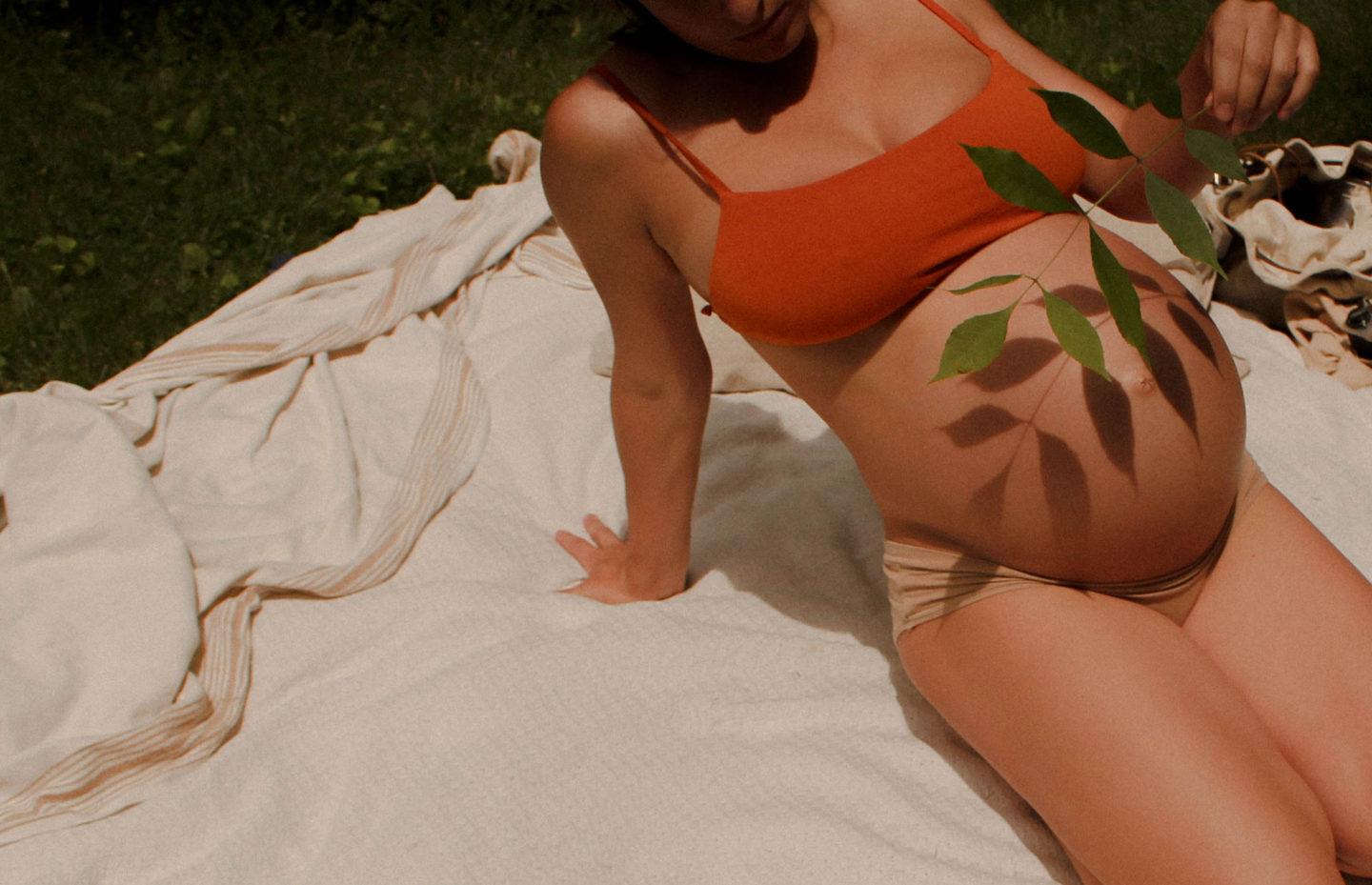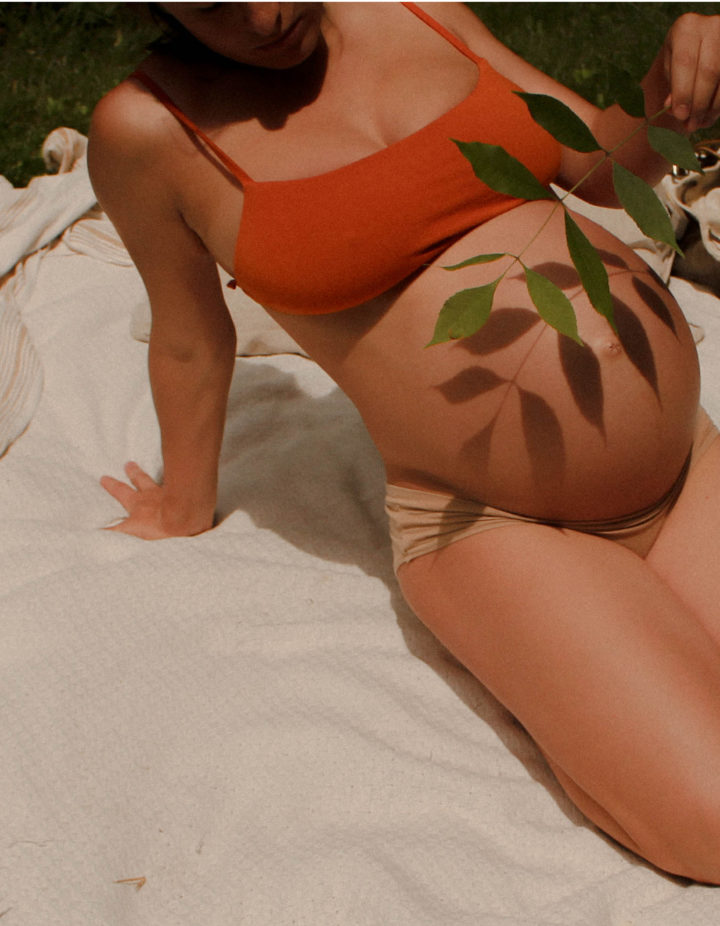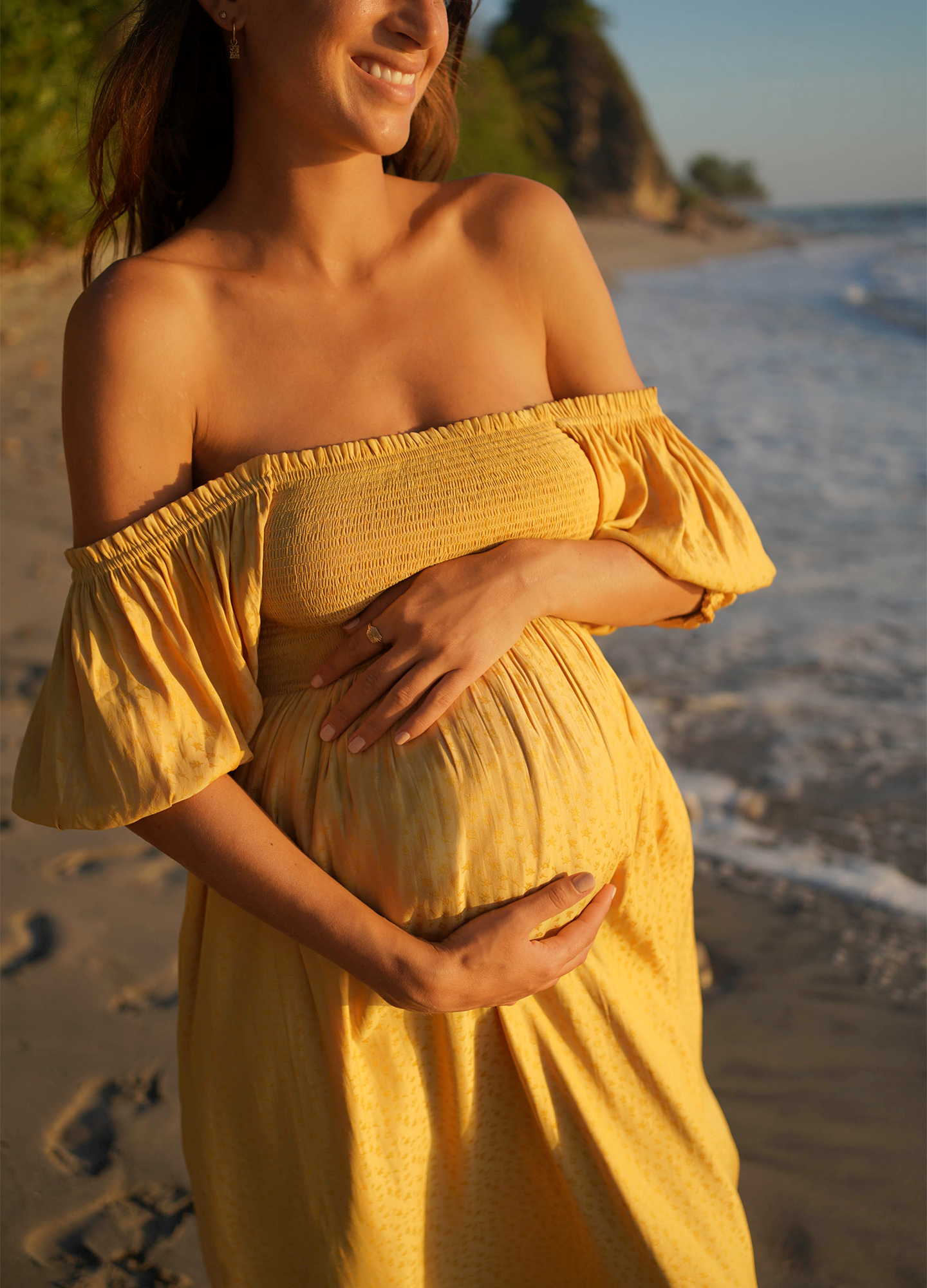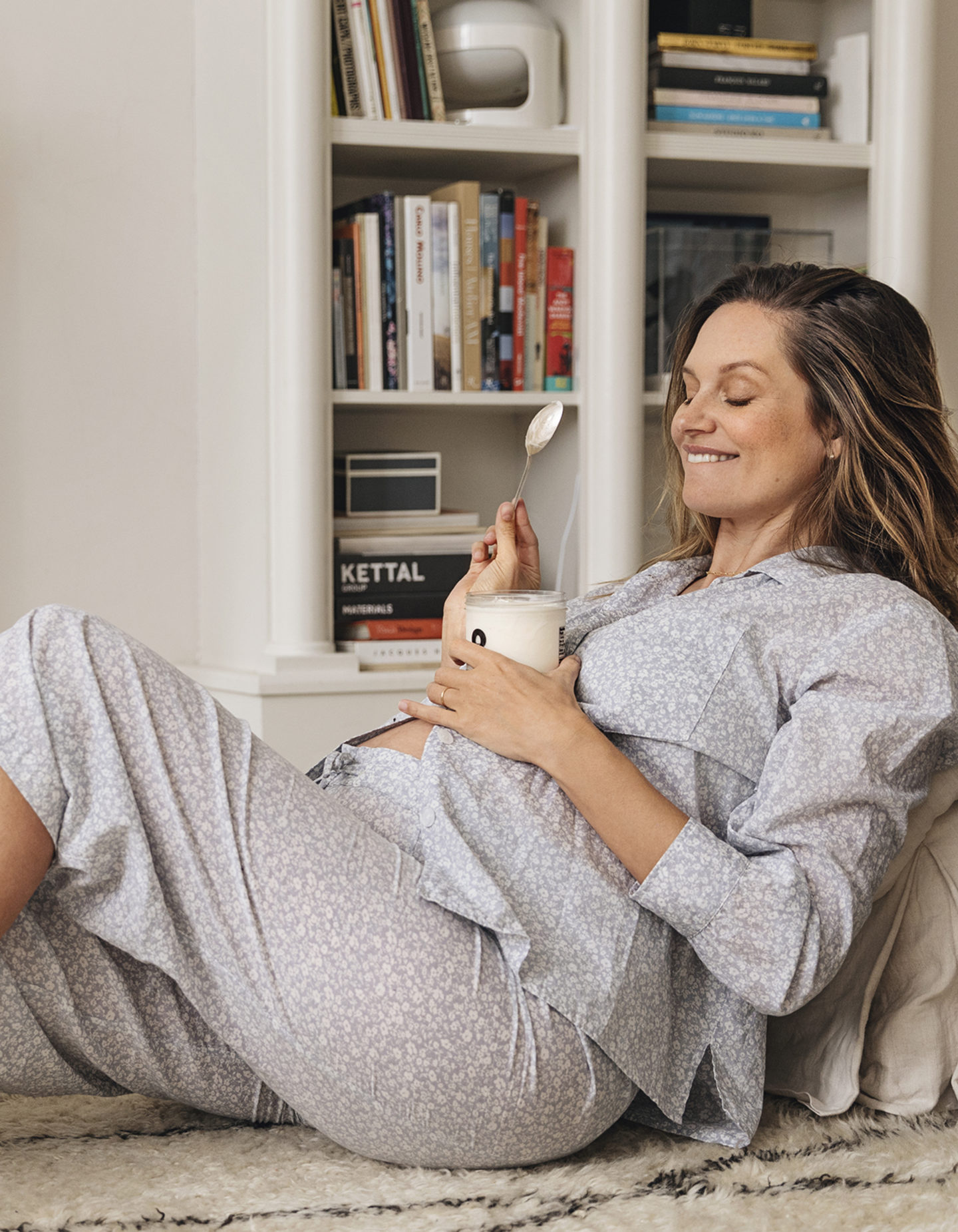So you popped a Lord Jones CBD gummy last summer and things just got chill. You weren’t straight-up stoned, per se, but you felt calmer and better equipped to take on the day. And ever since, they’ve been your savior through all the hectic moments that come with adulting. Now you’re pregnant and scared that your one crutch is no longer OK, and it left you wondering, is CBD safe for pregnancy??
Let’s rewind for a second. Cannabidiol (CBD) is commonly referred to as the non-psychoactive component to THC, aka marijuana, aka weed. Tetrahydrocannabinol (THC) is what gets you high, while CBD gives you a calming vibe that helps tackle insomnia, body pain, stress and a whole host of other physical and emotional issues. Here’s the thing, though. We know that THC during pregnancy is a big no-no – that it leads to low birthweight and a whole host of cognitive deficiencies, but what about pure CBD?

Photo courtesy of iStock ilbusca
The FDA strongly advises against the use of cannabidiol (CBD) as does the American College of Obstetricians and Gynecologists, which recommends that women who are pregnant, or even thinking about getting pregnant, avoid THC “and any by-products” at all costs. When it comes to CBD, it’s a question of your comfort and the comfort level of your medical provider. While many OB’s will undoubtedly err on the side of caution, Dr. Shamsah Amersi, a Los Angeles-based OB-GYN who’s been practicing for over 22 years, often incorporates holistic alternate care to help treat the whole patient and recommends CBD as an organic, natural, and possibly even a safer solution to many traditional treatment methods.
“There are a lot of symptoms during pregnancy and postpartum that are known to be ameliorated by CBD,” says Dr. Amersi. “For example, pregnant women often experience nausea due to morning sickness, pain, inflammation, swelling, muscle and back soreness, cramps, fatigue, stress, anxiety, and more. People use CBD for these conditions all the time. So why not do so while pregnant?”
The question of CBD continues post-delivery, too. We all know how beneficial CBD is on topical skincare products for hydration and its calming effects on sensitive, irritable skin. Well, there’s one entrepreneur looking to apply those same benefits to the family. Stephanie Pascarella recently launched Wash With Water, the first CBD skincare and sublinguals specifically crafted for mama’s self-care.
“Our topical CBD collection has been beneficial for so many women with skin condition changes, hormonal acne, dermatitis, as well as sensitive skin. CBD is one of most skin-loving ingredients in the botanical world in terms of hydration for the skin.” The sublingual line was designed with the purpose to provide solace in three major areas: sleep, stress, and self-care.
Dr. Meredith Grossman, an assistant professor in pediatrics at the Icahn School of Medicine at Mount Sinai advises her patients against using CBD on their babies and children. “Because there are no studies demonstrating safety of these products in babies and children, I do not recommend them,” she says.
The bottom line is, do your research, and once you’re done nursing, feel free to pop it, slurp it and smoke it ‘til your heart’s content. Because one thing’s for sure – between potty-training, preschool applications, toddler meltdowns and the general headaches of parenting, you’re likely going to need it.
“I want women to know there’s a space for CBD to play a big part in their wellness journey.” says Stephanie.
More Ways Kids Are Using CBD:
ADHD
While research is still progressing on ADHD, for many diagnosed with this disorder, increased dopamine levels can often bring relief. Some treatments include raising dopamine levels in ways that can lead to burn-out over prolonged periods. On the flip side, CBD for ADHD has been reported to block the activity of gamma-Aminobutyric acid, which allows the body to increase dopamine levels and prevent possible burn-out naturally. A recent survey of people with ADHD using this method showed that 25% of patients felt relief using CBD for ADHD. As always, check in with your doc.
Autism
A retrospective study assessed the safety, tolerability, and efficacy of CBD as an adjuvant therapy, for problems in children with autism. Following the cannabis treatment, behavioural outbreaks were much improved or very much improved in 61% of patients. Anxiety and communication problems improved by 39% and 47% respectively. Disruptive behaviours were improved by 29% following the treatment. Parents reported less stress as reflected in the APSI (Autism Parenting Stress Index) scores, changing by 33%.
Seizures (Epilepsy)
Studies suggest that CBD may be an effective treatment for children with hard-to-treat epilepsy. In assessing the theory, researchers often look at how many people have a 50% or greater reduction in seizures. A recent evidence review found that one in every 8 people taking CBD would have a 50% or greater reduction in seizures. A much smaller number (less than 1 in 150) would become seizure free.
Source: Mary Jane Labs




